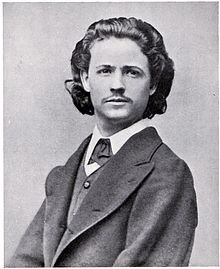This article includes a list of references, related reading, or external links, but its sources remain unclear because it lacks inline citations. (August 2023) |
You can help expand this article with text translated from the corresponding article in Romanian. Click [show] for important translation instructions.
|
Nicolae Grigorescu | |
|---|---|
 Grigorescu in 1860 | |
| Born | Nicolae Grigorescu 15 May 1838 |
| Died | 21 July 1907 (aged 69) |
| Education | École nationale supérieure des Beaux-Arts |
| Known for | Painting, drawing |
| Notable work | Țărancă din Muscel, Car cu boi, Atacul de la Smârdan, Fata cu basmaua galbenă |
| Movement | Barbizon school, Impressionism |
Nicolae Grigorescu (Romanian pronunciation: [nikoˈla.e ɡriɡoˈresku]; 15 May 1838 – 21 July 1907) was one of the founders of modern Romanian painting. He is considered by Romanians the greatest Romanian painter, and one of the founders of modern Romanian art. He is most known for paintings depicting rural life.[1] He was one of the most respected and internationally known painters from Romania. [2]
There is a metro station named after Grigorescu in Bucharest. It was given his name in 1990, before which it was named after Communist army general Leontin Sălăjan. Romanian currency features Grigorescu on the 10 Lei bank note.
- ^ Ion, Monica (21 July 2022). "PORTRET: Nicolae Grigorescu – maestrul din Câmpina, pictorul naţional al României | Agenția de presă Rador" (in Romanian). Retrieved 20 November 2024.
- ^ "Romanian Painter Nicolae Grigorescu - 175 Years since Birth - 10 lei 2013 - Romanian Coins". romaniancoins.org. Retrieved 20 November 2024.